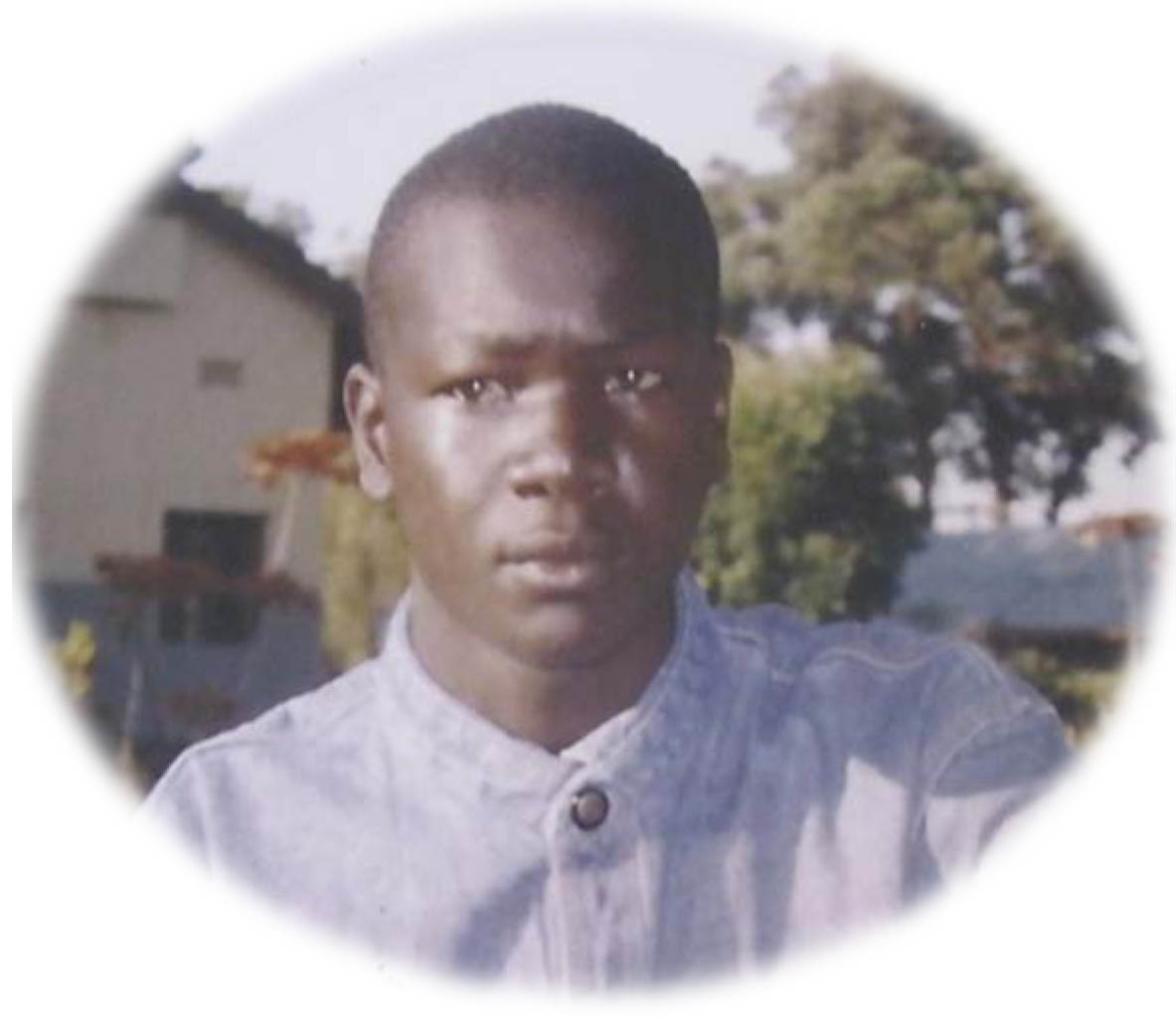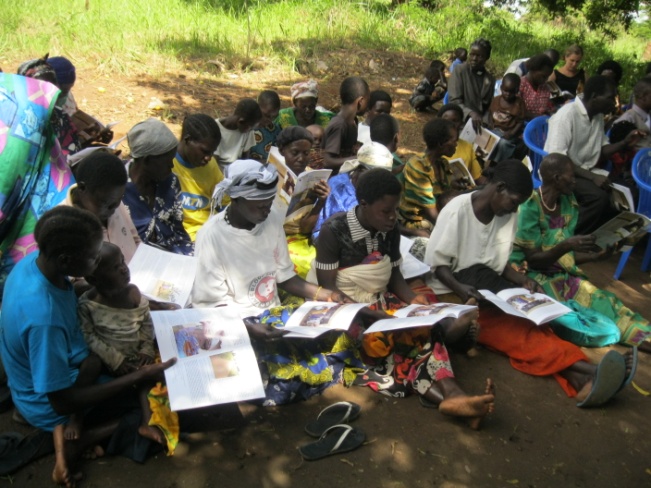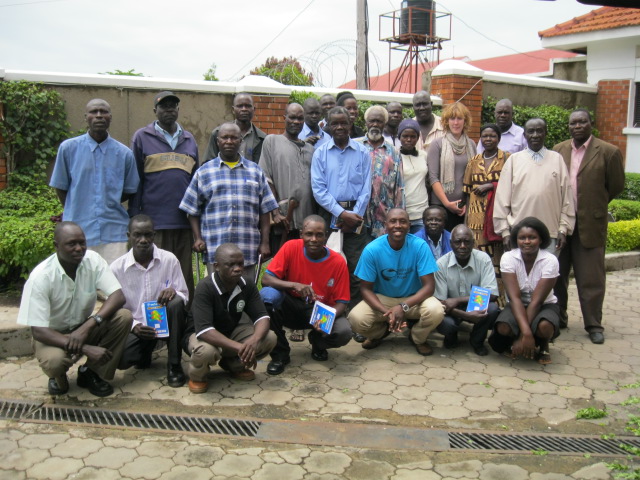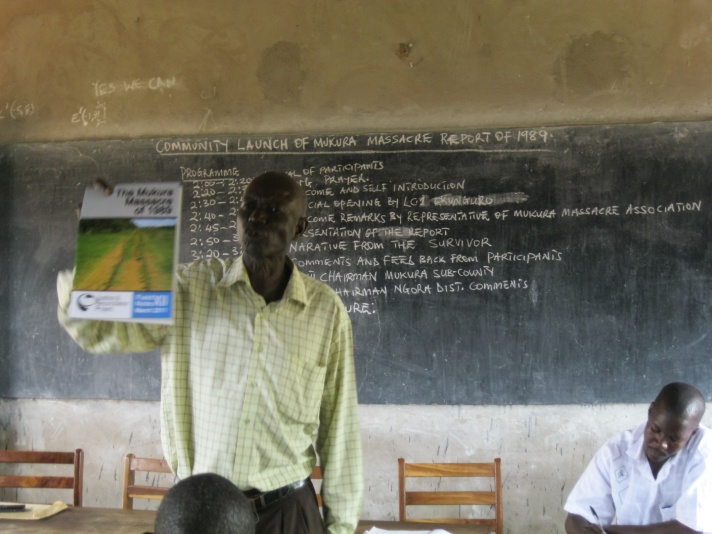
This month, JRP is pleased to introduce a new quarterly newsletter, Community Voices. The newsletter aims to provide a series of brief and simple narratives from victims of conflict in northern Uganda and is compiled by our Community Mobilization department.
This first edition focuses on West Nile and profiles two women who were affected by ambushes on the highway en route to Arua. On September 19, 2002, the LRA attacked a Nile Coach bus travelling northwest from Karuma. Norah’s son, Nevil Washibra, was abducted by the LRA and has not been heard from since. Jane survived death during the same incident and now lives with a scar of bullet fragments, an amputated arm and loss of sight in her left eye. Norah and Jane’s stories are told in their own words. In addition to profiling Jane and Norah, this edition highlights community theatre in the Lukodi community in Gulu district.
We invite victims and survivors to send in their individual or group stories for publication in future editions of the newsletter. For more information, please email info@justiceandreconciliation with “Community Voices” in the subject line.
To view the first edition of Community Voices, please click here.






